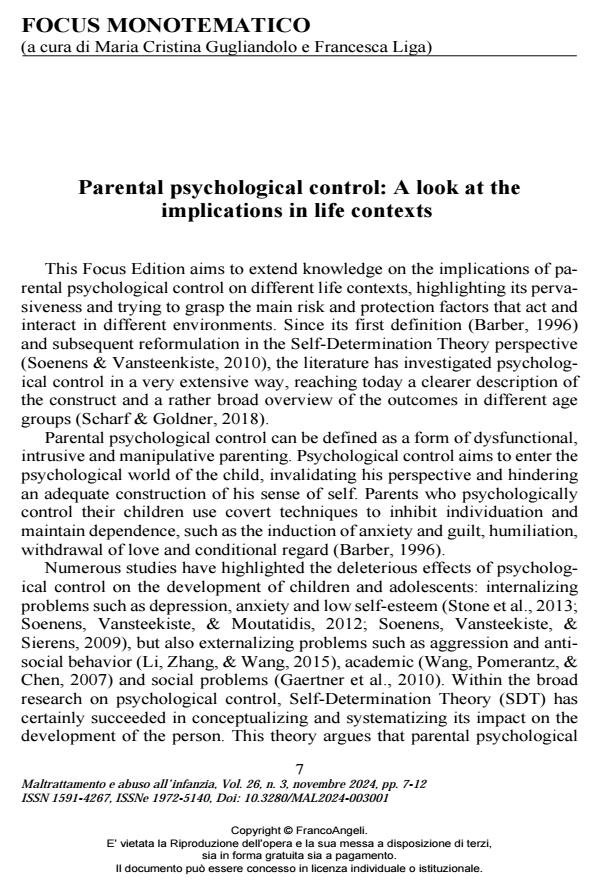Parental psychological control: A look at the implications in life contexts
Journal title MALTRATTAMENTO E ABUSO ALL’INFANZIA
Author/s Maria Cristina Gugliandolo, Francesca Liga
Publishing Year 2024 Issue 2024/3
Language Italian Pages 6 P. 7-12 File size 150 KB
DOI 10.3280/MAL2024-003001
DOI is like a bar code for intellectual property: to have more infomation
click here
Below, you can see the article first page
If you want to buy this article in PDF format, you can do it, following the instructions to buy download credits

FrancoAngeli is member of Publishers International Linking Association, Inc (PILA), a not-for-profit association which run the CrossRef service enabling links to and from online scholarly content.
Maria Cristina Gugliandolo, Francesca Liga, Parental psychological control: A look at the implications in life contexts in "MALTRATTAMENTO E ABUSO ALL’INFANZIA" 3/2024, pp 7-12, DOI: 10.3280/MAL2024-003001